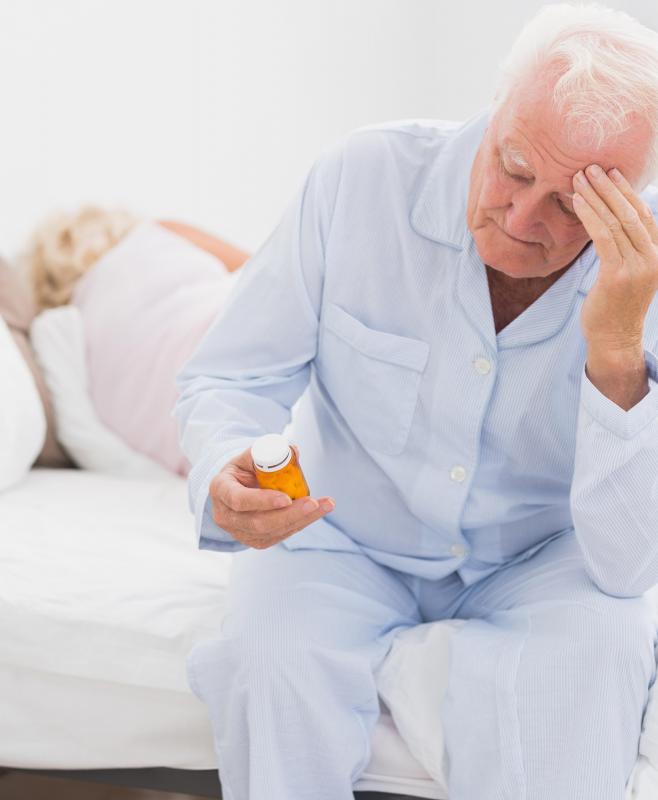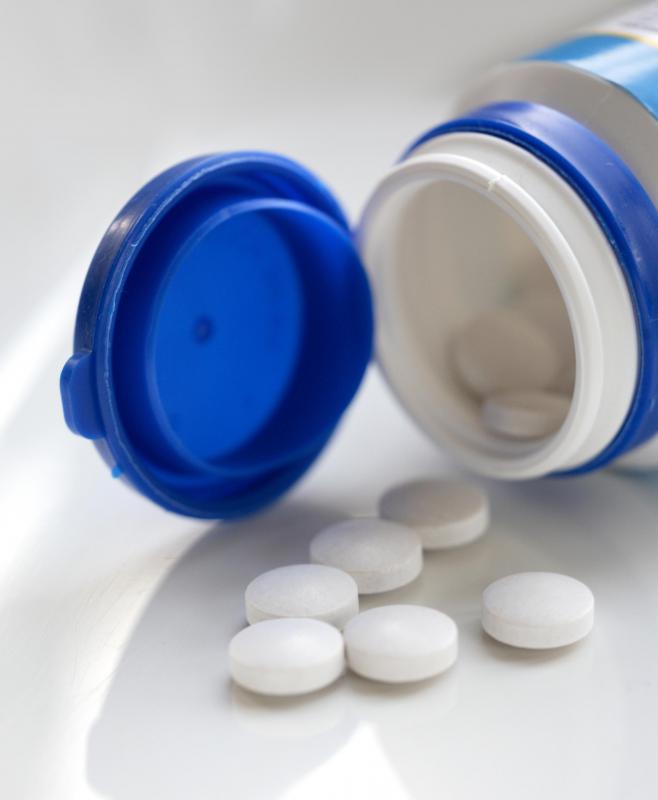At WiseGEEK, we're committed to delivering accurate, trustworthy information. Our expert-authored content is rigorously fact-checked and sourced from credible authorities. Discover how we uphold the highest standards in providing you with reliable knowledge.
How do I Read Medication Labels?
Medication labels are common for over the counter and prescription drugs. The information they provide gives the consumer a way to quickly gather knowledge. Close reading of a label without outside guidance tells a lot, but it can help even more to know what to look for, such as: dosage, warnings, storage information, uses, side effects and other details. For prescribed medication, some of this information isn’t on the bottle or package but is given in an accompanying printout or leaflet.
The average over the counter medication labels may be printed on a bottle or box or could be on a printout. They identify the drug by generic name, milligram amount in a single dose, and list common uses. A section underneath covers warnings. The first warnings usually state when not to use the medicine or when to get physician advice. The section below it tends to list side effects that may alter behavior, like drowsiness. Finally if the medicine is poisonous or if it poses special risk to certain populations, such as pregnant women, this is usually stated as well.

After a warnings section, the next part of most medication labels is a section on appropriate dosage. This is important to read carefully, especially noting any child and adult dosage differences. Directions may also state how many days the medication can be used safely or list a maximum number of doses that can be taken in a single day.
Two short sections typically finish the list. One includes any storage instructions, like “store in a cool dry place,” and the other may be a list of inactive ingredients in the drug. This list should be read especially if people have allergies to common foods.

Consumers will note differences on medication labels that accompany prescription drugs. The labels on the bottles typically begin with the name, address and phone number of the pharmacy. Underneath is the name of person receiving the prescription. In some cases, the next line is the name of the medication and milligram amount, but some pharmacies list medication directions above the name of the drug. Usually the two are in close proximity, so that directions for use are clear. At the bottom of the label, people will usually find information about whether they can get refills, the quantity of medicine included, and an expiration date.

Detailed warning information usually isn’t on prescription bottle medication labels, but pharmacists occasionally affix extra preprinted stickers to them. “Take with Food,” “Causes Drowsiness,” or “Keep Refrigerated” are a few examples of extra label information on the bottle. Most other information comes in an accompanying printout or pamphlet.

The sections in a pamphlet identify the drug, its ingredients, and its minor and major side effects. They also list contraindications against use, and instances when people should consult doctors, prior to use. It’s worthwhile to read these pamphlets to ascertain a drug is appropriate, no major side effects are occurring, and it isn’t being taken with other common medications that can cause problems.
AS FEATURED ON:
AS FEATURED ON:
















Discussion Comments
@Fa5t3r - The thing is, it might not be worth scaring yourself with all the very unlikely side effects of different medications. If you start feeling ill while on a particular drug, just take it with you to the hospital to make sure the doctors are aware that you're on it. Every drug that I've ever taken has have a list of potential reactions several feet long and I think most of them are completely unlikely. Unless medication warning labels mention it, I tend not to worry too much about it.
@browncoat - I really don't trust medication labels or even doctors or pharmacists to be completely accurate when it comes to pills I have to take. I always look them up online to double check what complications might arise or if there are any foods or other medications I can't take while on them.
I've never been warned by my doctor about grapefruit, for example, even though it can interfere with several different kinds of medications and it's not exactly something you would automatically think of as a danger.
I also like to be aware of the more rare complications because there have been a couple of times when I've gone to the doctor and they have blamed something on my medication that I didn't even know was a possibility.
Please remember that not all the information you might need is going to be on the label. If your doctor asks you about things like whether you drink or smoke or if you take other medications, then be completely honest with them because a lot of drugs will interact with everyday products you might take for granted and that might not be on the label.
Likewise, if you have any questions about the drugs when you get them, don't hesitate to ask the pharmacist because they should know the answers.
Post your comments